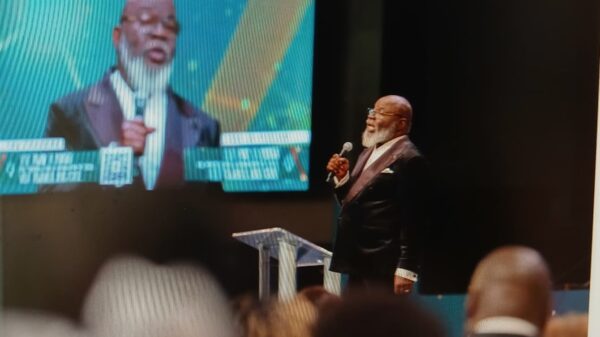By Dave Lieber
https://www.dallasnews.com

I had a hunch about big banks. It was just a gut feeling that banks are much less likely to reimburse customers who lost thousands of dollars because of scammers who pretended to work for the banks.
Two stories about Chase Bank customers that came into Watchdog Nation in the same week ratcheted up my suspicion. In one, a woman lost $25,000. In the other, a married couple lost $7,700.
Another watchdog who studies banking confirmed my hunch.
The problem is theft from personal bank accounts is “rampant” and “the banks can’t keep up with this,” said Teresa Murray, the consumer watchdog director for U.S. Public Interest Research Group.
“You’re absolutely right that banks are really pushing back from taking responsibility for all of the problems going on. And it’s awful.”
Murray shared a profound thought about banks that really hit home for me. But before I share her idea, I want to take a quick look at Chase cases one and two.
Modern bank robbers
These stories are for smart people who think this could never happen to them. Well, guess what?
It wasn’t long ago that if you wanted to rob a bank, you wore a mask, carried a gun and made sure the teller didn’t trip the silent alarm while you filled your money bags. Your getaway driver was on the lookout outside.
That’s too labor intensive. Now you need one guy with a phone and access to confidential information from a data breach. A scammer, pretending to be with the bank, the electric company, Amazon or anyone can make thousands of dollars in a single day.
They must laugh at us as they take our money through elaborate schemes.
Randie Benno of Hunt still doesn’t know how she lost $25,000 from a wire transfer. It happened so fast.
She received a text supposedly from Chase on her phone and clicked on it. Uh-oh.
A man who said he was from Chase was calling. Benno’s caller ID showed the call came from Chase (through spoofing). He said she might be the victim of fraud, and he wanted to help her. Ironic, I know. Use fraud prevention to create fraud.
She says she didn’t give any information such as account numbers or passwords. Yet he knew how much was in her savings account.
“It feels very creepy,” Benno said.
The 40-year Chase customer told me, “I am not somebody that gets taken advantage of. … I feel violated, confused and can’t hardly recall how this all happened.”
“I can’t believe I didn’t hang up on him and call the bank.”
I asked Greg Hassell, Chase spokesperson for Texas, to look into Benno’s case.
He reported back that “unfortunately she fell victim to a scam. These types of scams are heartbreaking. We urge all customers to ignore phone, text or Internet requests for money or access to your computer or bank accounts. Banks will never call, text or email asking you to send money to yourself or anyone else to prevent fraud.”
Second Chase case
Sally Civello of Dallas, like Benno above, isn’t sure how she lost $7,700.
Her husband, Philip, said the bank told the couple that it believes his wife initiated the money transfer and benefited financially from it.
If that’s true the husband said he challenged the bank to file a police report charging his wife with criminal theft. The bank didn’t do that.
Chase spokesperson Hassell said, “We are still actively investigating Mr. Civello’s case and are in contact with him on next steps.”
Great idea
Here’s that great idea I promised from consumer watchdog Murray, who says this bank crisis is coming to a head in the U.S. Senate Banking Committee. (She recommends calling your senators and House members to ask for stronger regulations.) Here’s why:
Banks are so quick to flag credit card transactions that look odd and outside of your normal behavior,” she said. “The reason is because that’s their money. If you dispute a fraudulent purchase, it’s a chargeback and you’re not out anything because it’s the law.
“But if it’s a bank account, that’s not the bank’s money. That’s your money. And even though they have the capability of seeing what your transaction history is — and have you ever wire transferred $6,000 or $10,000 before? No! And yet they don’t flag it. The banks are not interested in protecting consumers as much as they should be.”
So it comes down to three choices for how to protect your life savings: 1) bury it in your backyard, 2) hide it in your mattress, or 3) when someone contacts you that you weren’t expecting to hear from, no matter what they say, hang up and contact the actual company if you’re worried. Double-check it.
Watchdog tips:
Don’t engage with unexpected callers, regardless of caller ID or the sender’s official-looking email address.
Call the company supposedly involved and check if all is OK. Call the number on the back of the credit card or the phone number on the monthly bill.
Never pay someone you weren’t expecting through gift card numbers or apps like Zelle, Venmo, CashApp or other instant payment options.
Use 2-step authentication to protect your accounts.
Avoid public Wi-Fi systems, such as those at airports.
This story, originally published in The Dallas Morning News, is reprinted as part of a collaborative partnership between The Dallas Morning News and Texas Metro News. The partnership seeks to boost coverage of Dallas’ communities of color, particularly in southern Dallas.









You must be logged in to post a comment Login